Special Report
25 Most Common Reasons for a Check Engine Light

Published:
Last Updated:

When a vehicle’s check engine light turns on, many Americans ignore it while hoping it is not a significant problem. While minor issues often trigger a check engine light, serious issues often do so as well, and failing to address the problem can lead to costly repair bills. More than 10% of vehicles on the road currently have their check engine light on.
Consultancy and automotive information provider CarMD tracks vehicle service and ownership trends. 24/7 Wall St. reviewed the 25 most common check engine light repairs as listed in CarMD’s 2017 Vehicle Health Index report.
The top 25 repairs account for 62% of all check engine repairs in the United States. Replacing a faulty oxygen sensor — a sensor used to optimize a vehicle’s fuel-to-air mixture to increase gas mileage and reduce emissions — is the most common cause for a check engine light. With over 400,000 repairs nationwide, oxygen sensor replacements account for 8% of all check engine light repairs.
Click here to see the most common check engine light repairs.
Relatively old vehicles are the most likely to have a check engine light on. Vehicles between model years 2004 and 2006 accounted for 30% of all cars that had their check engine light on in 2016. Owners of vehicles of this age can expect a lower likelihood of a check engine light if they have been consistent with regular maintenance and responded to small repairs quickly in the past.
The average cost to address a check engine signal was $398 in 2016. The cheapest repair of any common issue was a warning of a loose fuel cap, which only cost vehicle owners about $17 to repair. However, a catalytic converter replacement cost owners nearly $1,200, the most expensive repair on this list.
Nationwide, catalytic converter replacements cost Americans $429.4 million in 2016, at least three times the amount of any other repair. In total, the 25 repairs on this list cost Americans over $1.2 billion in 2016.
To determine the most common check engine light repairs, 24/7 Wall St. reviewed the 2017 Vehicle Health Index report from automotive diagnostics information provider CarMD. Each check engine light trigger as a share of all repairs, as well the average repair cost for each, also came from this report. Total nationwide 2016 recommended repairs and 2016 total cost were calculated using the share of 2016 repairs and the total repairs analyzed by CarMD in 2016. CarMD recorded a total of 5,345,588 repairs. It is important to note that while this total is a statistically valid sample, totals tend to fluctuate considerably between years.
These are the 25 most common check engine light repairs.

25. Replace Crankshaft Position Sensor (CKP)
> Share of 2016 repairs: 0.88%
> Avg. repair cost: $215
> 2016 recommended repairs: 47,041
> 2016 total cost: $10.1 million
[in-text-ad]
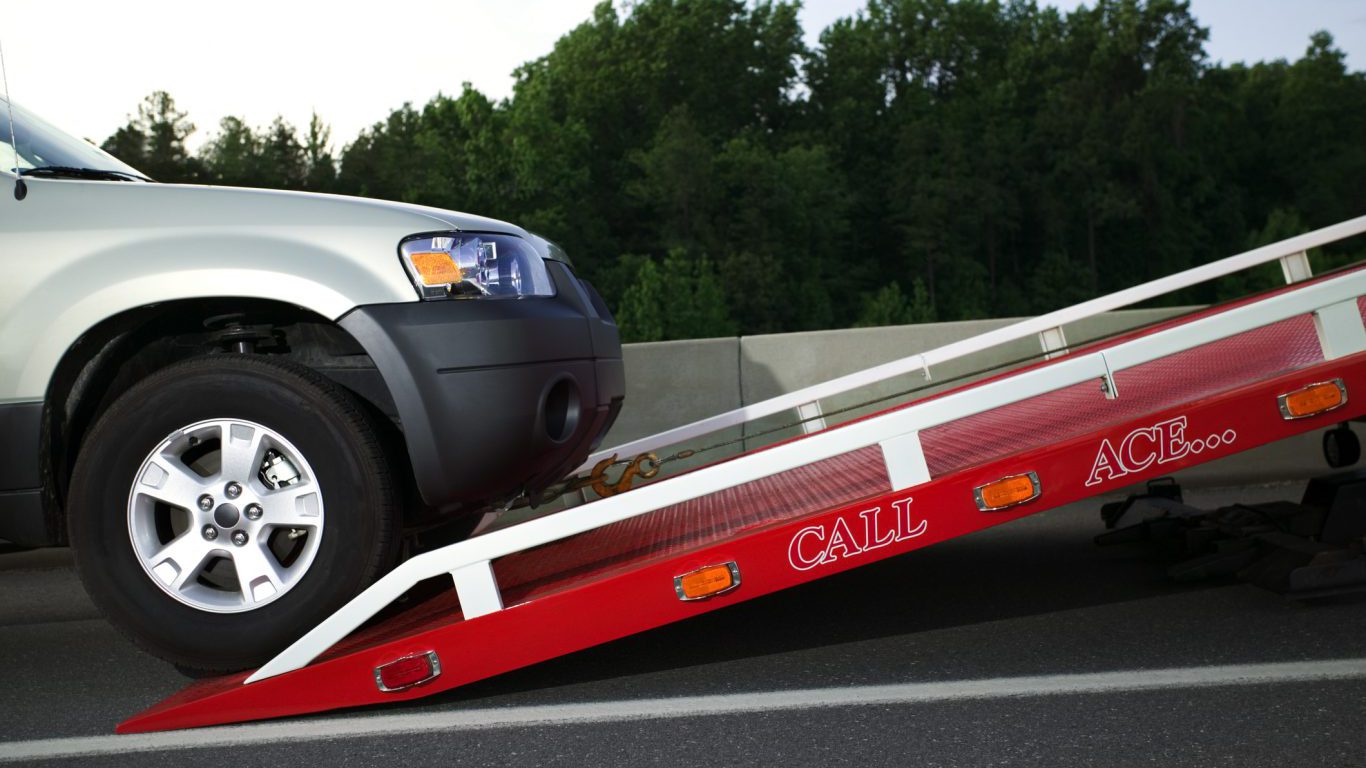
24. Replace Evaporative Emissions (EVAP) Canister Vent Valve
> Share of 2016 repairs: 0.89%
> Avg. repair cost: $208
> 2016 recommended repairs: 47,576
> 2016 total cost: $9.9 million
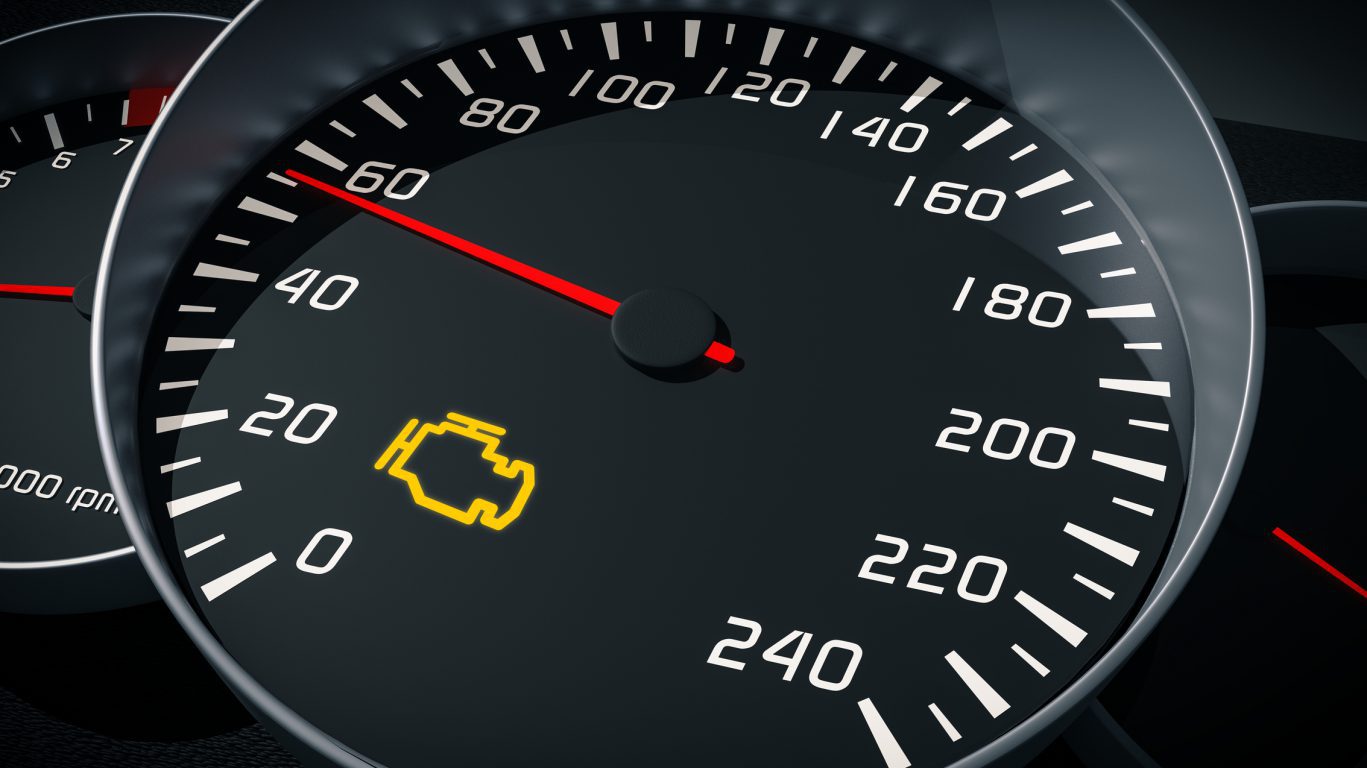
23. Replace Intake Manifold Gasket(s)
> Share of 2016 repairs: 0.97%
> Avg. repair cost: $404
> 2016 recommended repairs: 51,852
> 2016 total cost: $21.0 million
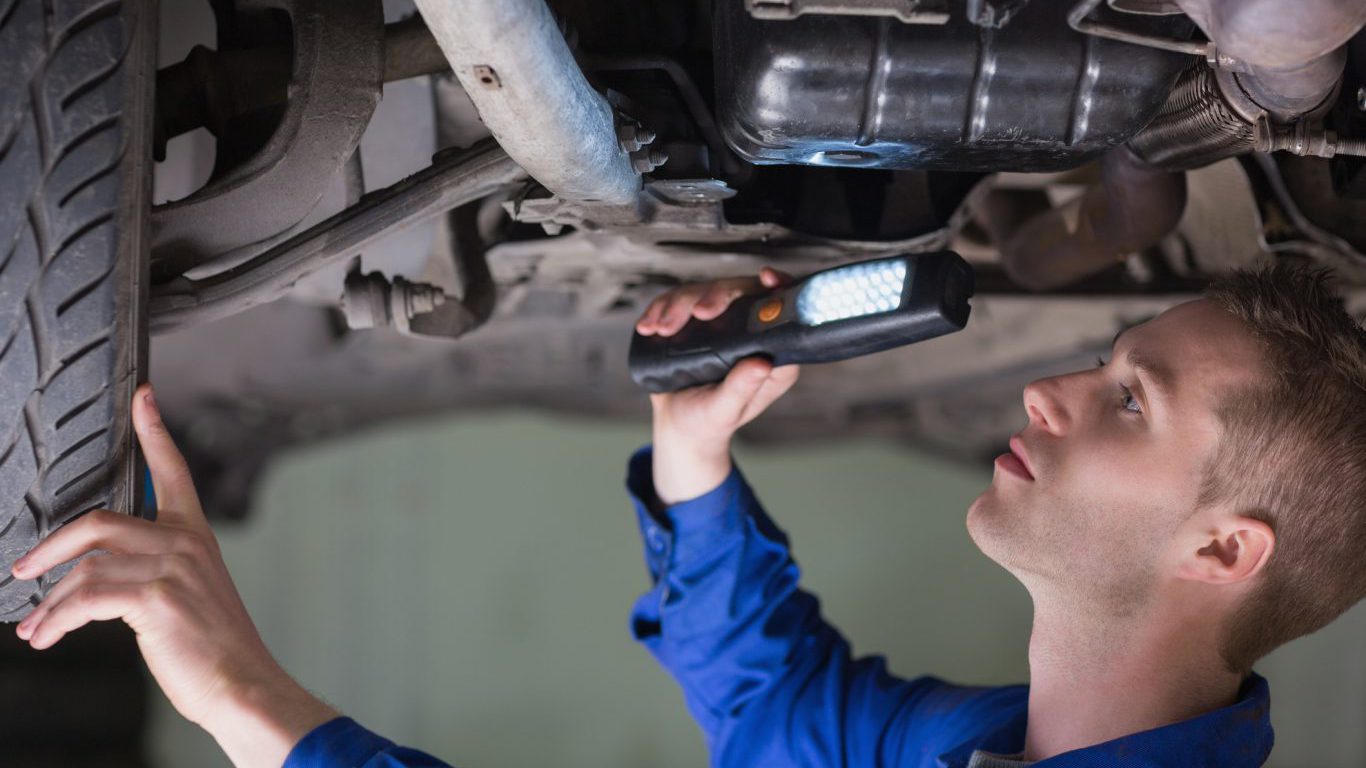
22. Replace Evaporative Emissions (EVAP) Vent Control Valve
> Share of 2016 repairs: 0.99%
> Avg. repair cost: $249
> 2016 recommended repairs: 52,921
> 2016 total cost: $13.2 million
[in-text-ad-2]

21. Replace Engine Coolant Temperature Sensor (ECT)
> Share of 2016 repairs: 1.04%
> Avg. repair cost: $167
> 2016 recommended repairs: 55,594
> 2016 total cost: $9.3 million

20. Replace Emission System Integrity Monitor (ESIM)
> Share of 2016 repairs: 1.04%
> Avg. repair cost: $152
> 2016 recommended repairs: 55,594
> 2016 total cost: $8.5 million
[in-text-ad]
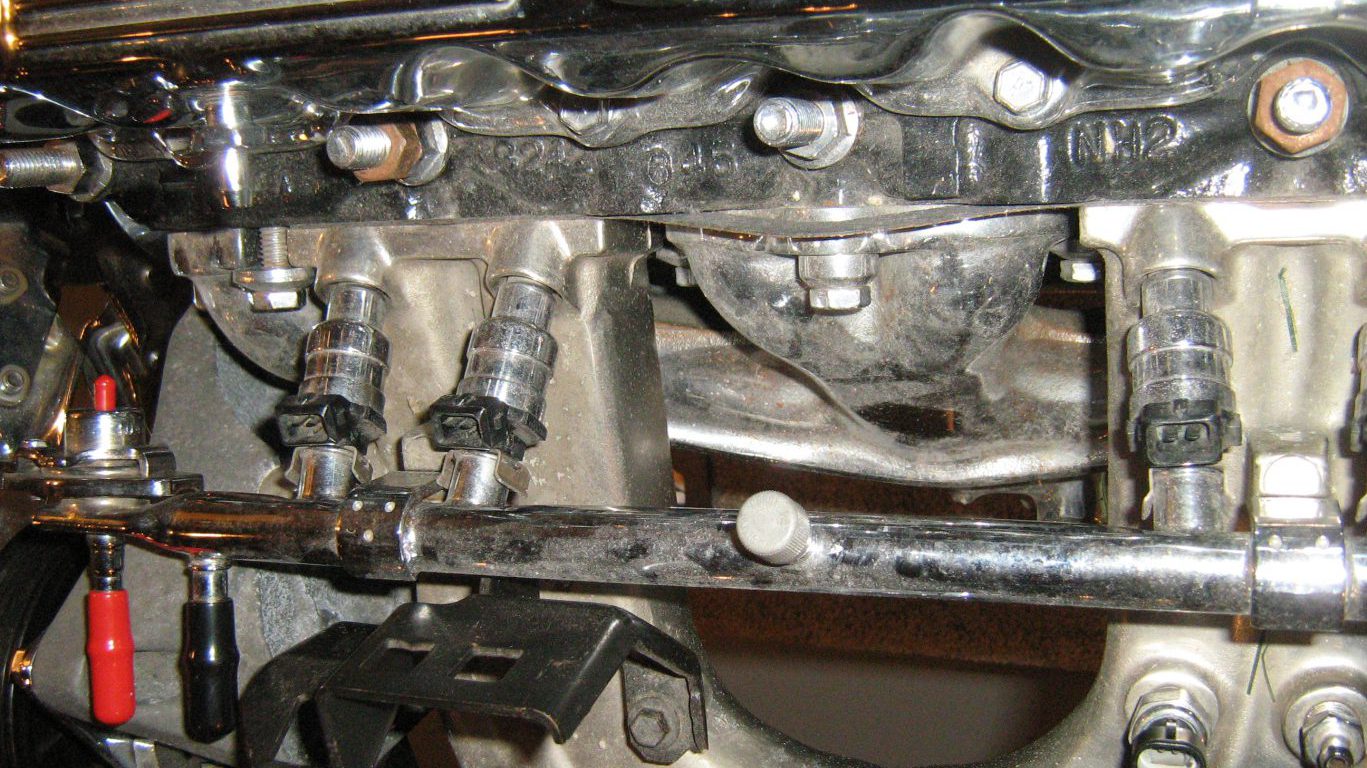
19. Clean Fuel Injector(s)
> Share of 2016 repairs: 1.08%
> Avg. repair cost: $123
> 2016 recommended repairs: 57,732
> 2016 total cost: $7.1 million
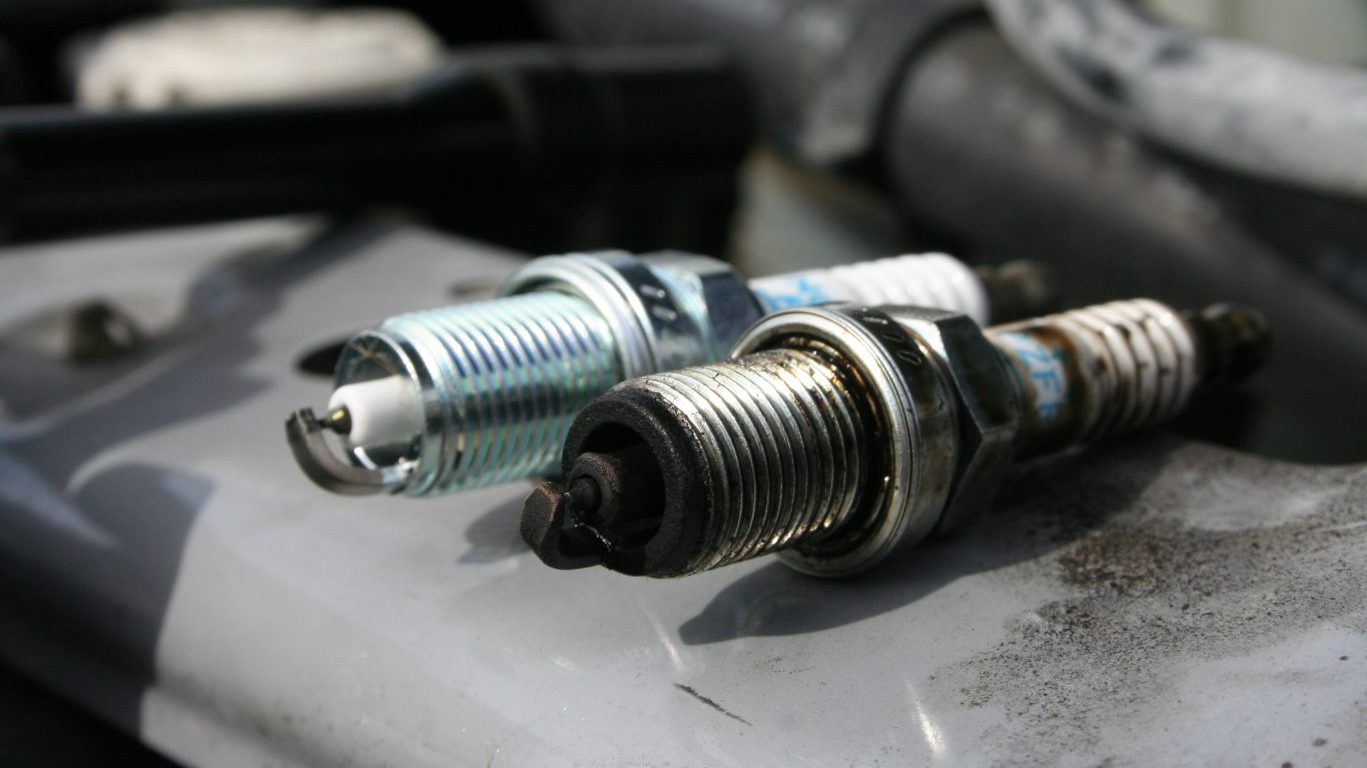
18. Replace Spark Plug(s)
> Share of 2016 repairs: 1.09%
> Avg. repair cost: $242
> 2016 recommended repairs: 58,267
> 2016 total cost: $14.1 million

17. Replace Knock Sensor(s)
> Share of 2016 repairs: 1.10%
> Avg. repair cost: $389
> 2016 recommended repairs: 58,801
> 2016 total cost: $22.9 million
[in-text-ad-2]
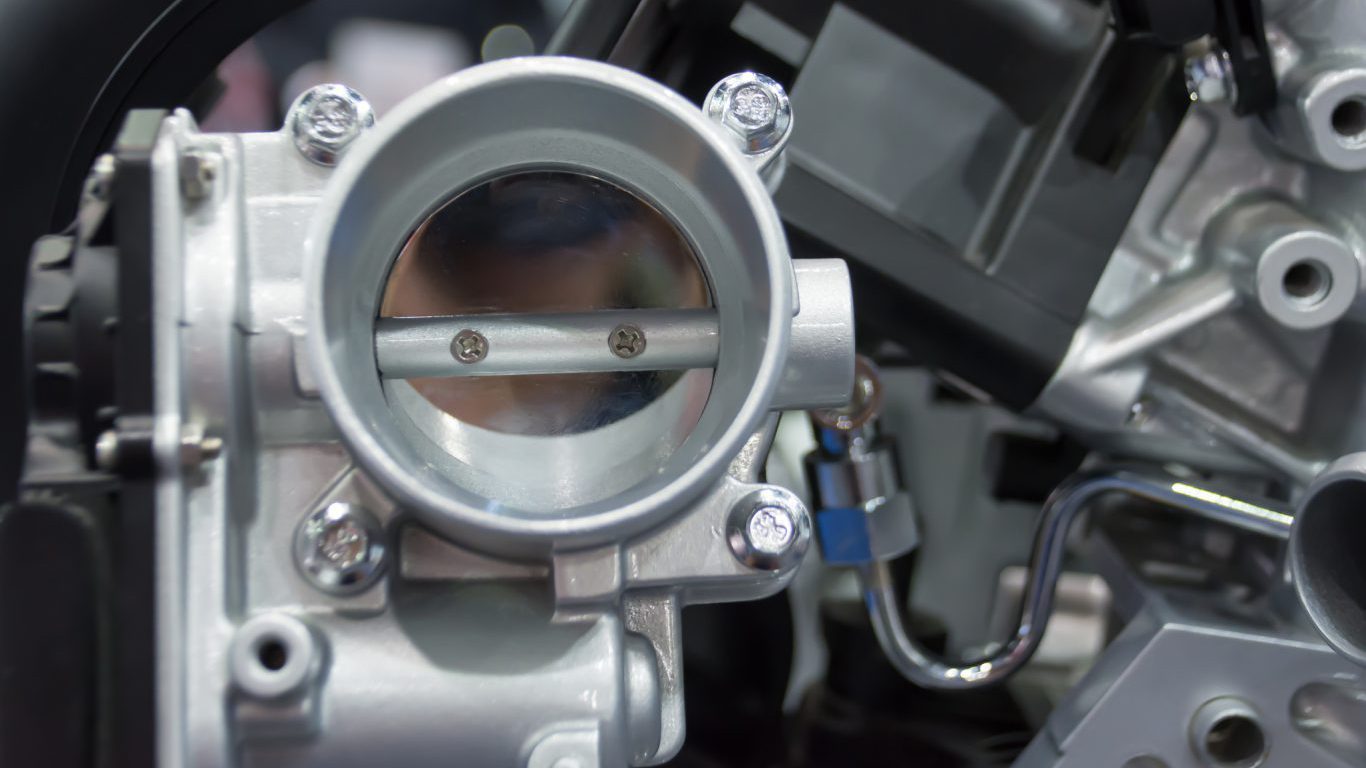
16. Replace Throttle Body Assembly
> Share of 2016 repairs: 1.17%
> Avg. repair cost: $578
> 2016 recommended repairs: 62,543
> 2016 total cost: $36.2 million
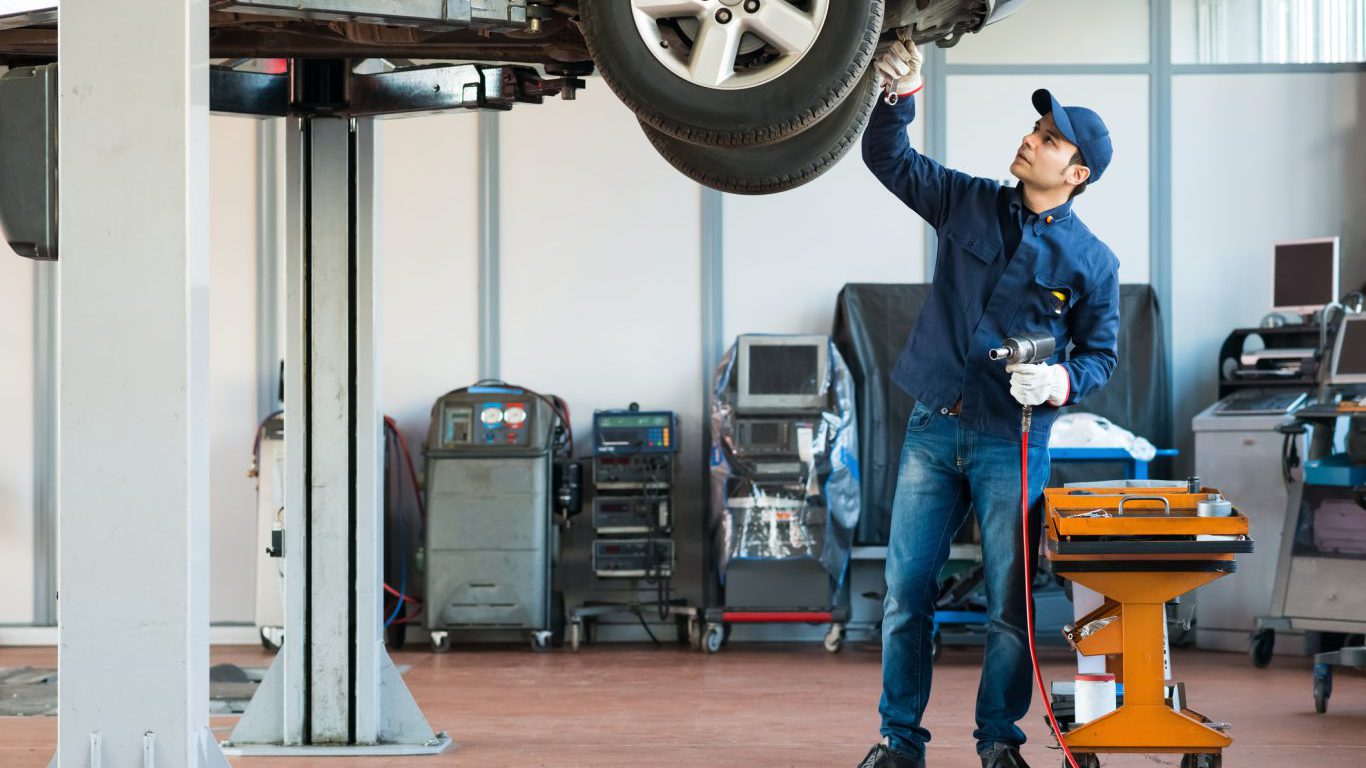
15. Replace Fuel Tank Pressure (FTP) Sensor
> Share of 2016 repairs: 1.29%
> Avg. repair cost: $334
> 2016 recommended repairs: 68,958
> 2016 total cost: $23.1 million
[in-text-ad]

14. Replace Evaporative Emissions (EVAP) Canister Vent Solenoid
> Share of 2016 repairs: 1.33%
> Avg. repair cost: $221
> 2016 recommended repairs: 71,096
> 2016 total cost: $15.7 million
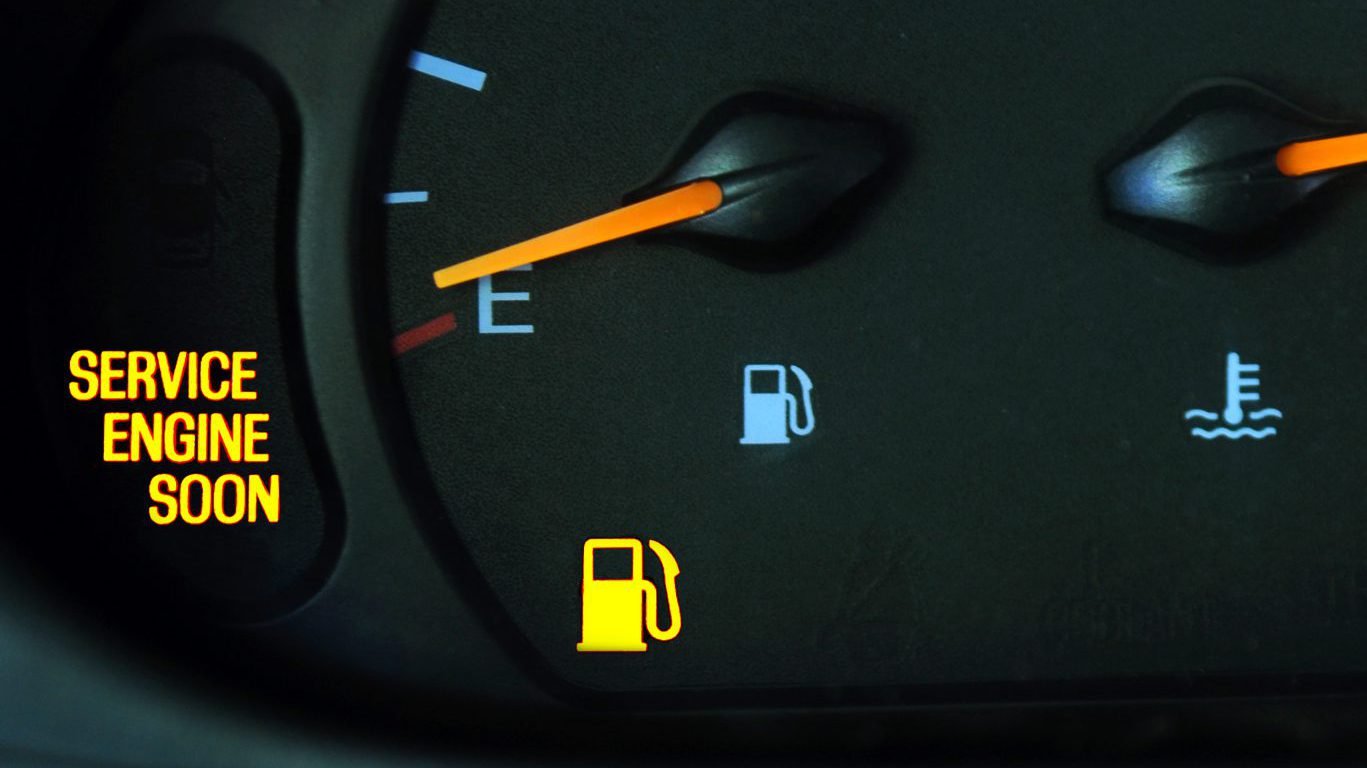
13. Replace Camshaft Position Sensor (CMP)
> Share of 2016 repairs: 1.49%
> Avg. repair cost: $207
> 2016 recommended repairs: 79,649
> 2016 total cost: $16.5 million

12. Replace Exhaust Gas Recirculation (EGR) Valve and Clean All EGR ports
> Share of 2016 repairs: 1.80%
> Avg. repair cost: $353
> 2016 recommended repairs: 96,221
> 2016 total cost: $33.9 million
[in-text-ad-2]
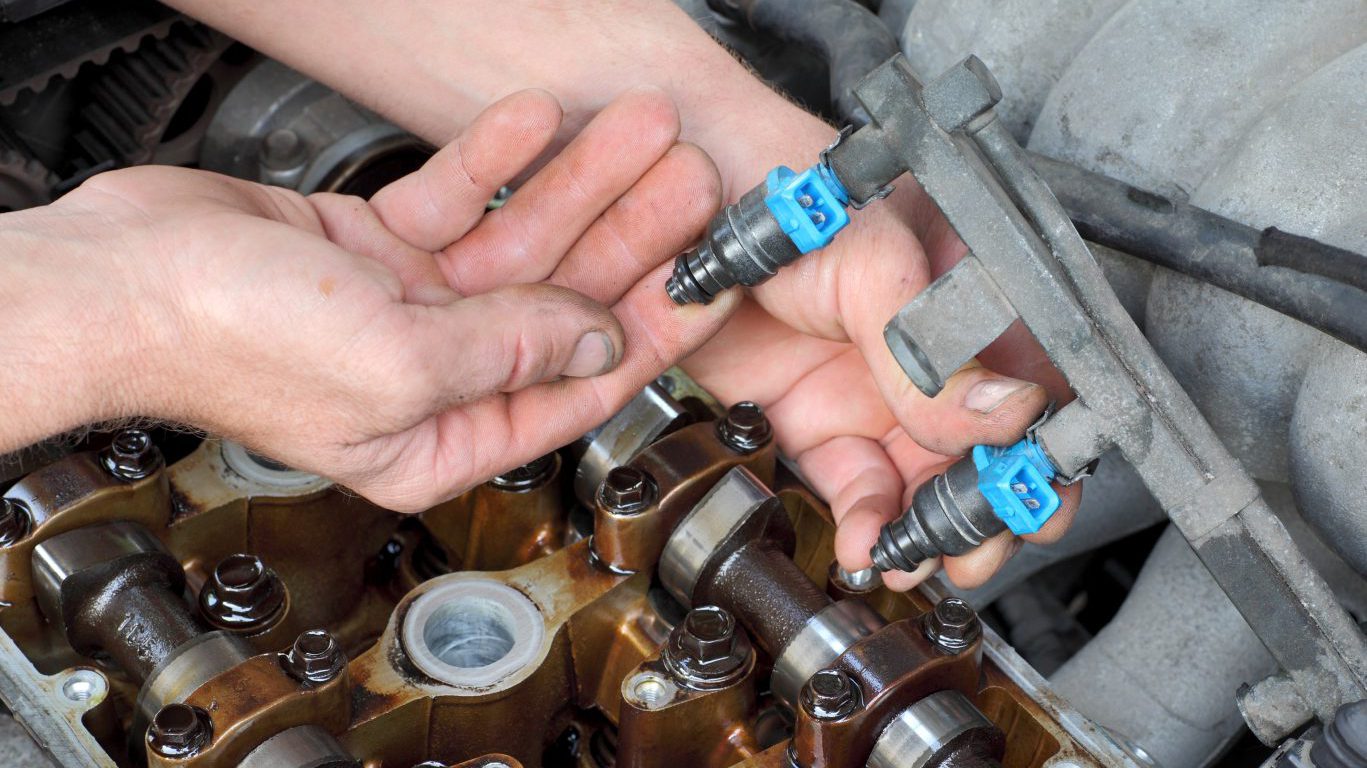
11. Replace Fuel Injector(s)
> Share of 2016 repairs: 1.96%
> Avg. repair cost: $467
> 2016 recommended repairs: 104,774
> 2016 total cost: $48.9 million
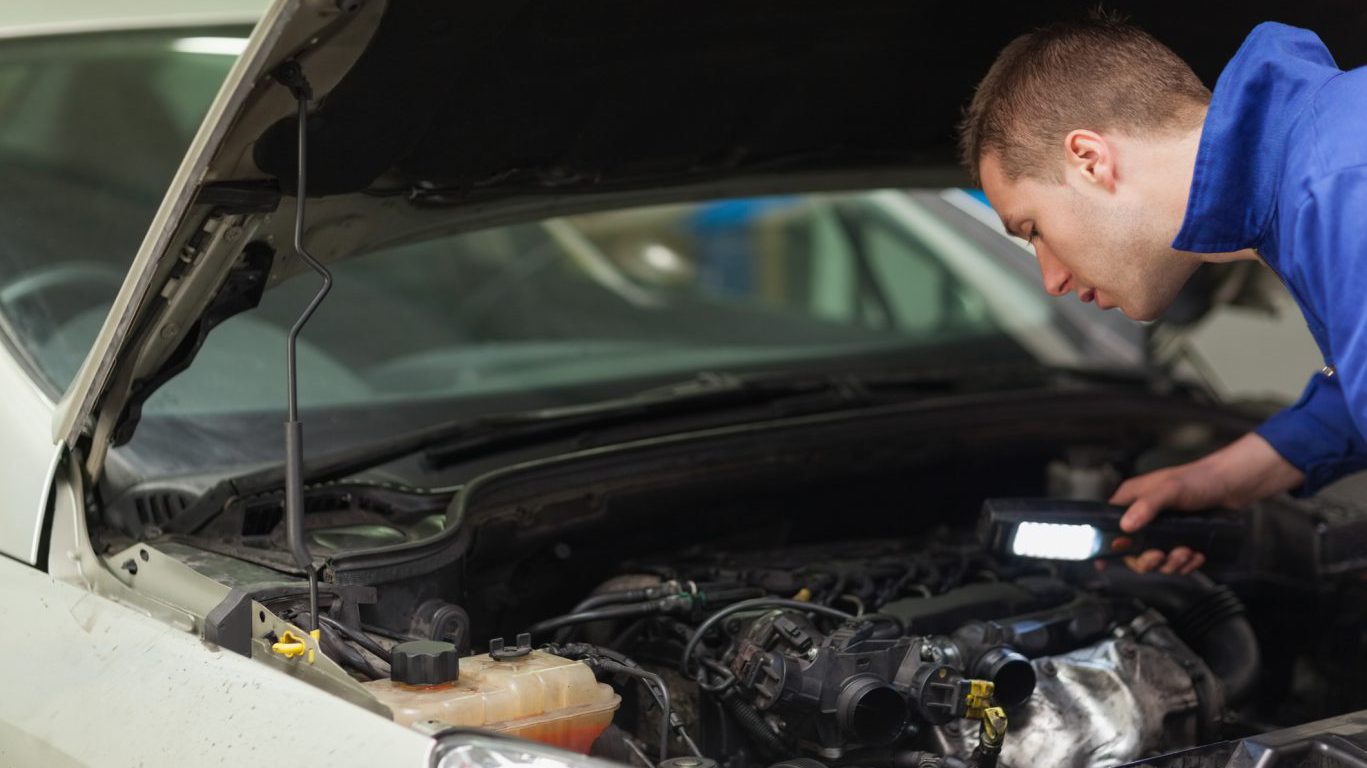
10. Replace Evaporative Emissions (EVAP) Purge Solenoid
> Share of 2016 repairs: 2.52%
> Avg. repair cost: $196
> 2016 recommended repairs: 134,709
> 2016 total cost: $26.4 million
[in-text-ad]
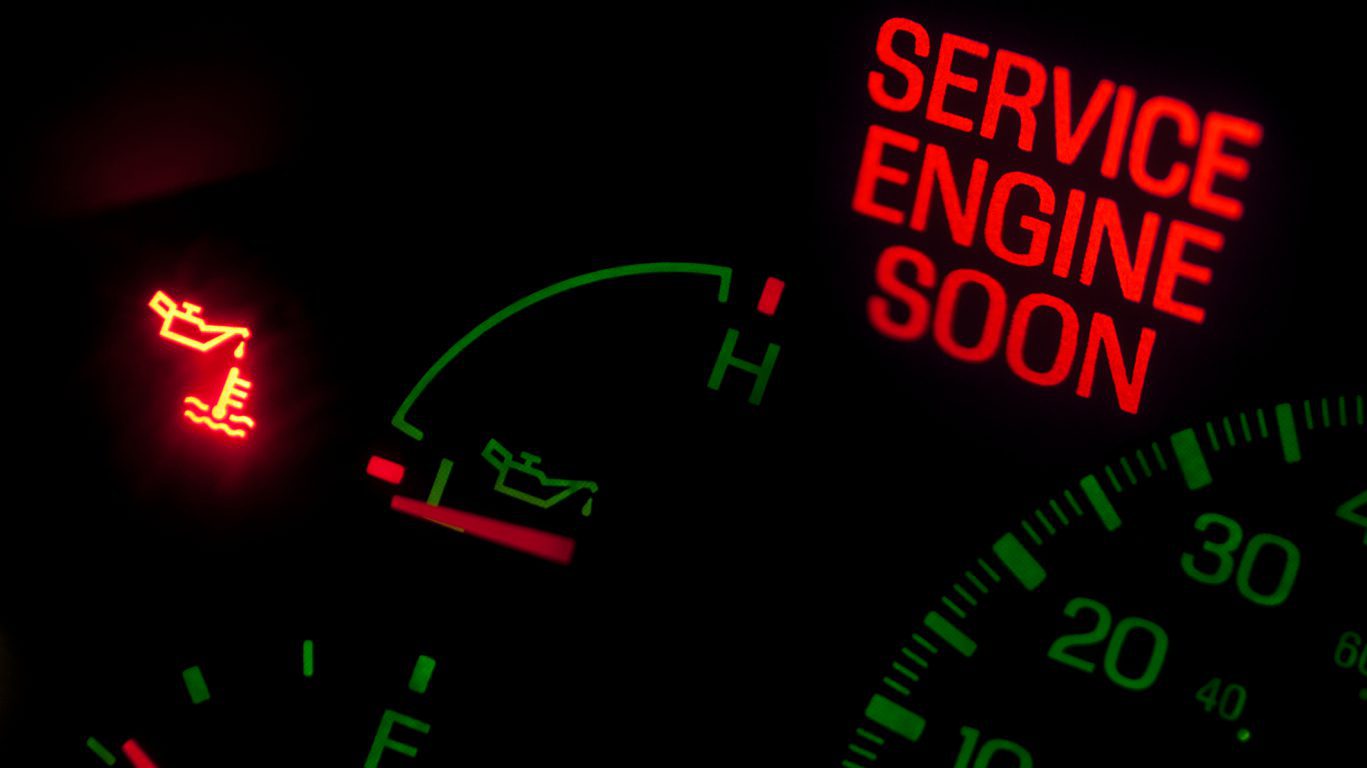
9. Replace Thermostat
> Share of 2016 repairs: 2.91%
> Avg. repair cost: $225
> 2016 recommended repairs: 155,557
> 2016 total cost: $35.1 million
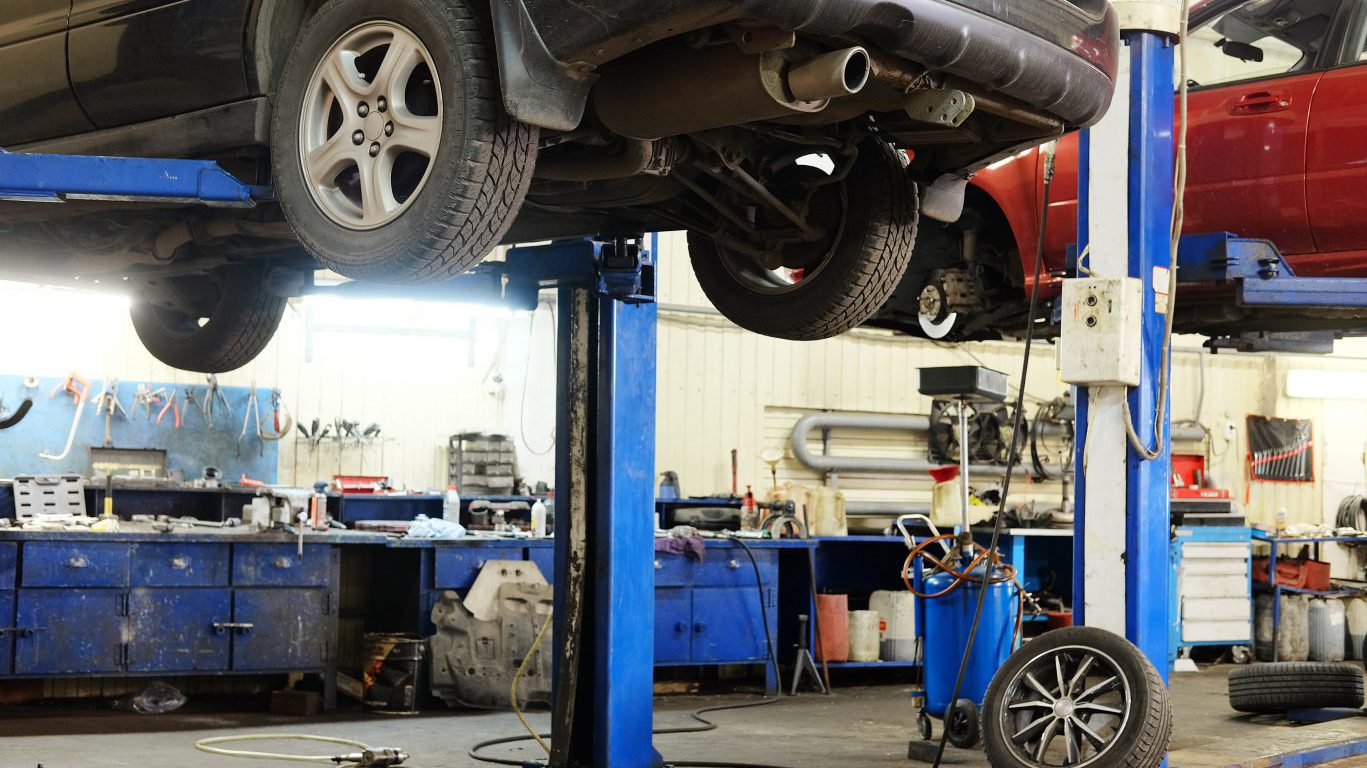
8. Replace Evaporative Emissions (EVAP) Purge Control Valve
> Share of 2016 repairs: 2.92%
> Avg. repair cost: $176
> 2016 recommended repairs: 156,091
> 2016 total cost: $27.5 million
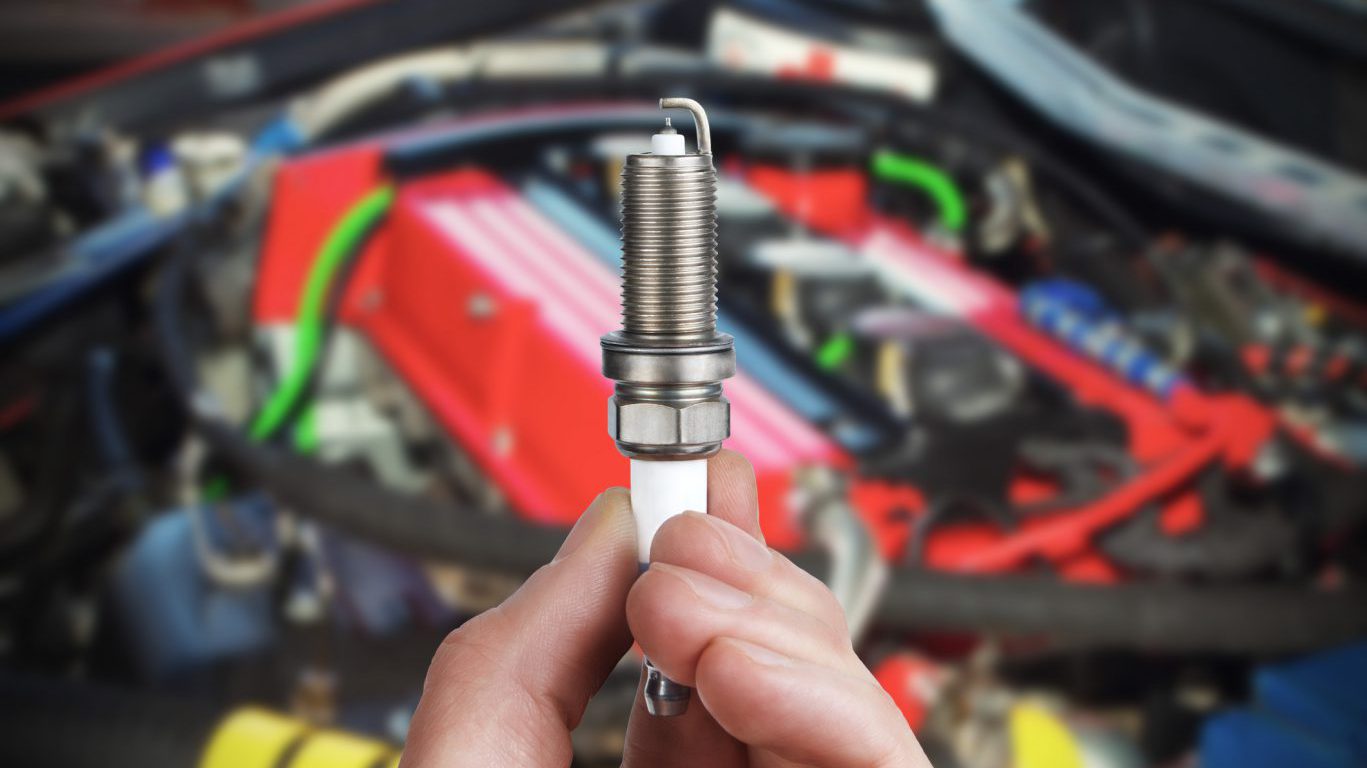
7. Replace Spark Plug Wires and Spark Plugs
> Share of 2016 repairs: 3.13%
> Avg. repair cost: $342
> 2016 recommended repairs: 167,317
> 2016 total cost: $57.2 million
[in-text-ad-2]
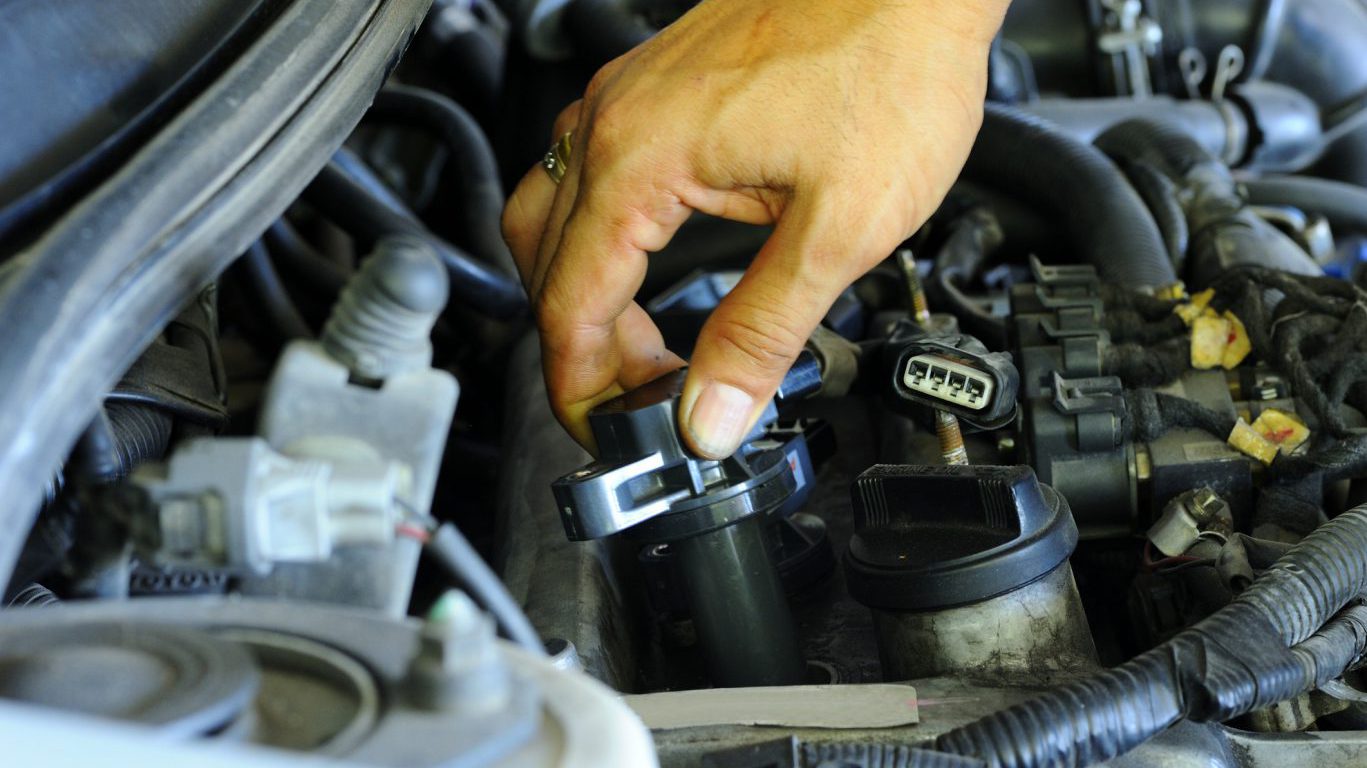
6. Replace Ignition Coil(s)
> Share of 2016 repairs: 3.44%
> Avg. repair cost: $243
> 2016 recommended repairs: 183,888
> 2016 total cost: $44.8 million
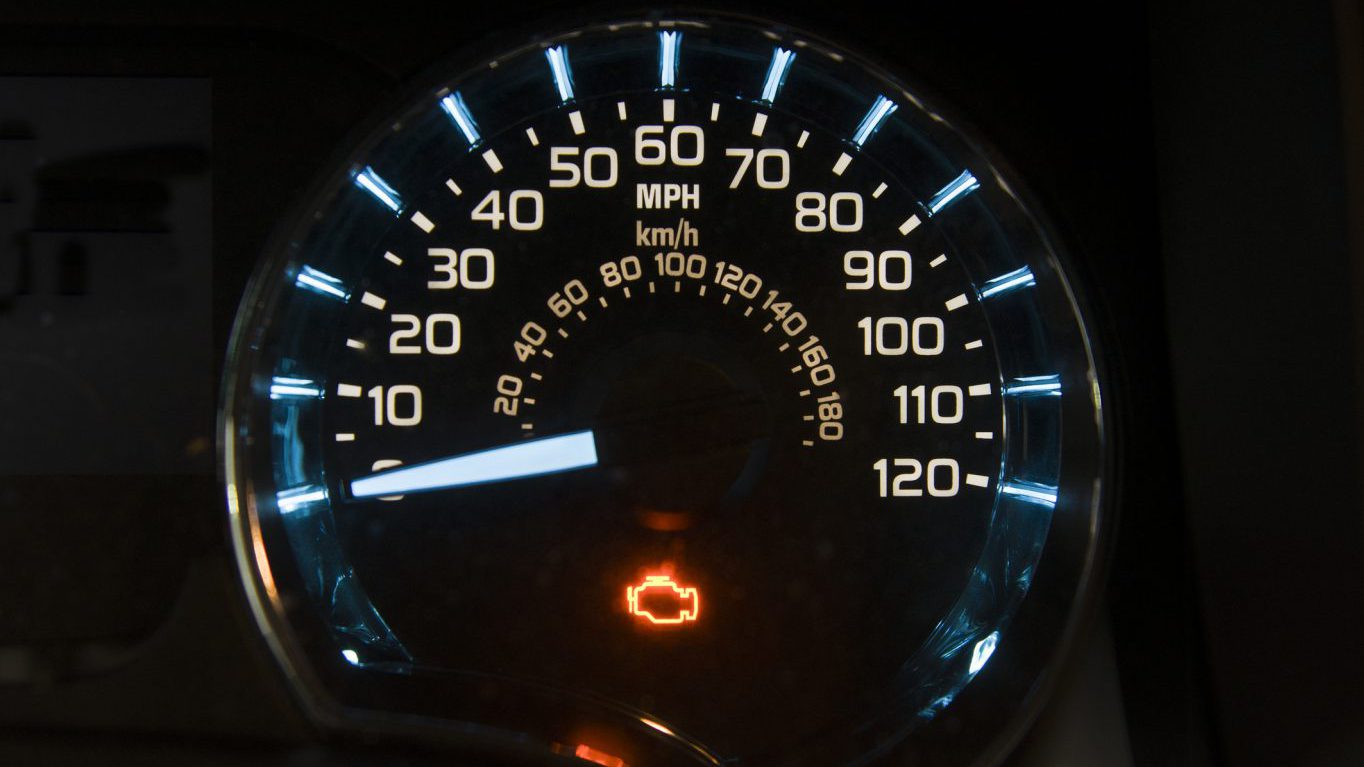
5. Replace Mass Air Flow (MAF) Sensor
> Share of 2016 repairs: 3.84%
> Avg. repair cost: $378
> 2016 recommended repairs: 205,271
> 2016 total cost: $77.6 million
[in-text-ad]
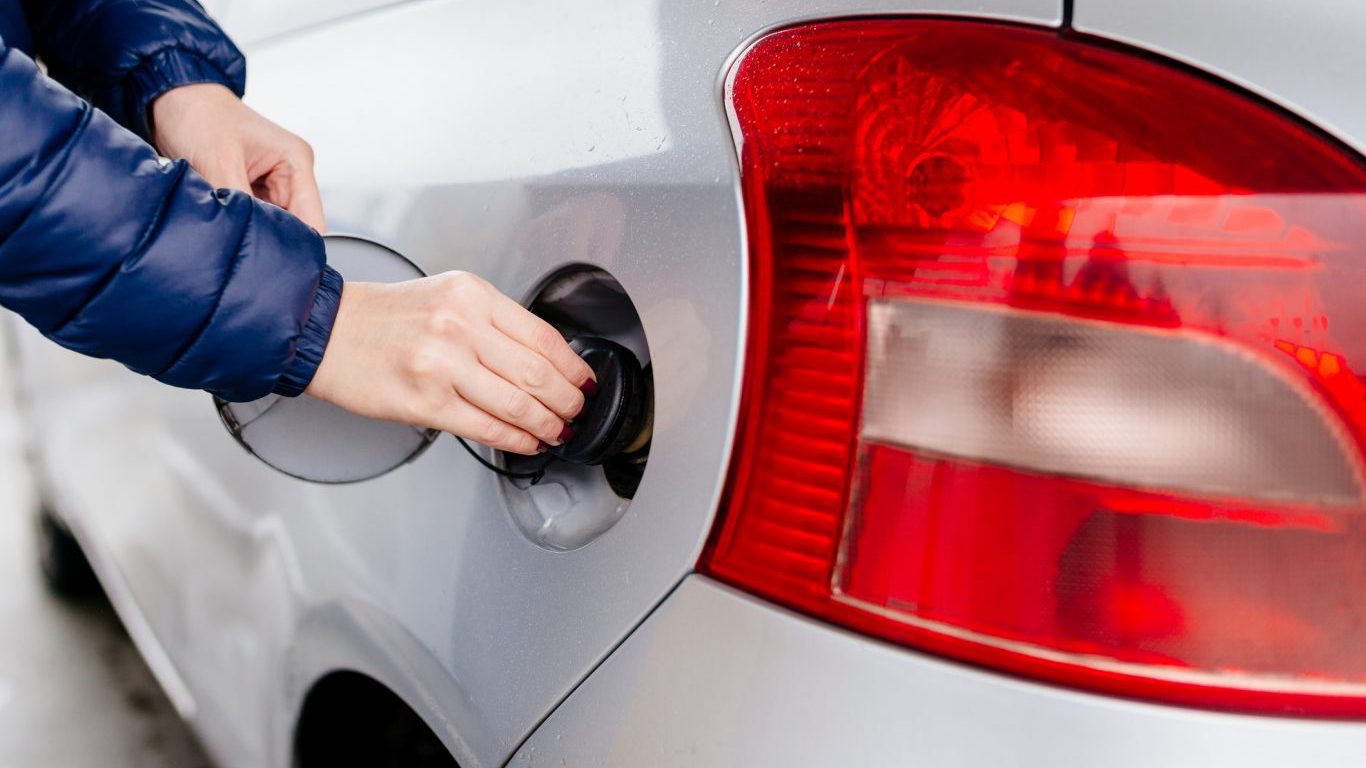
4. Inspect for Loose Fuel Cap and Tighten or Replace as Necessary
> Share of 2016 repairs: 4.16%
> Avg. repair cost: $17
> 2016 recommended repairs: 222,376
> 2016 total cost: $3.8 million
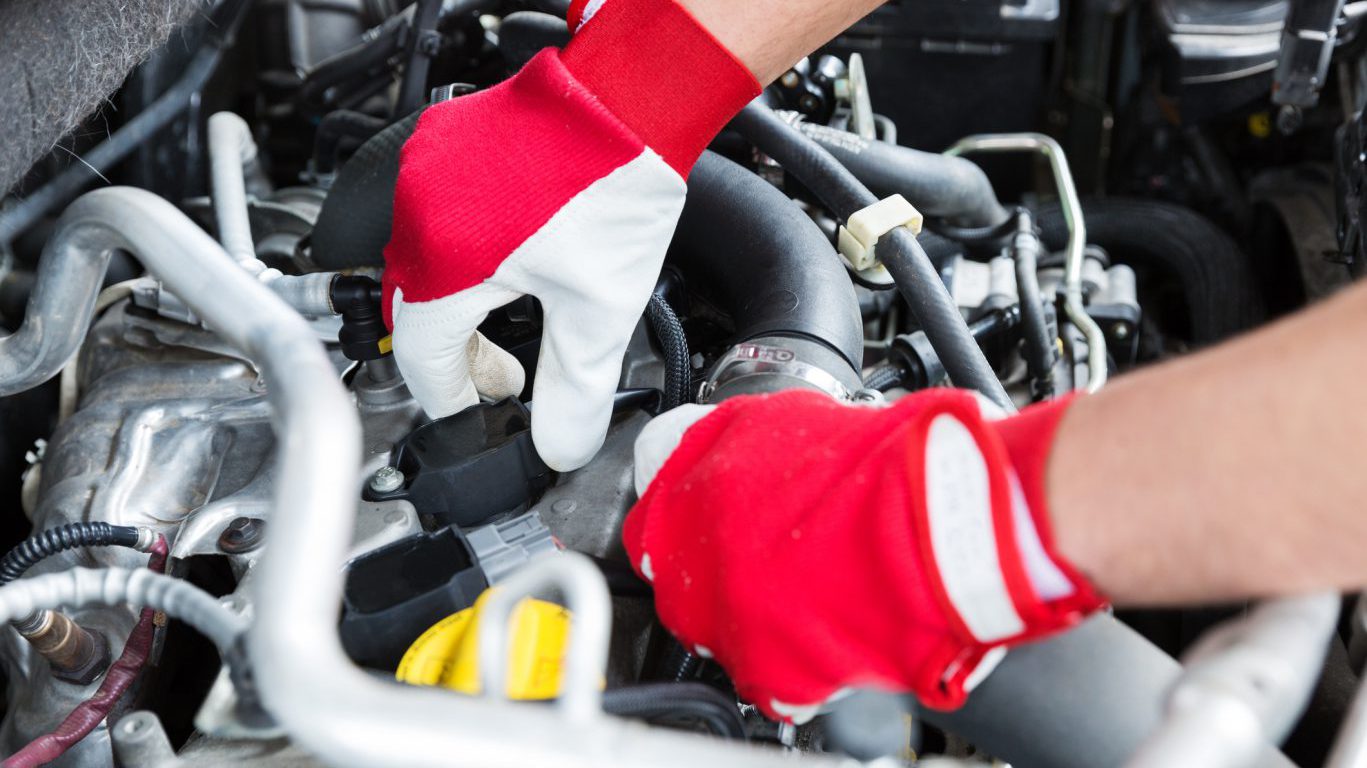
3. Replace Ignition Coil(s) and Spark Plug(s)
> Share of 2016 repairs: 6.23%
> Avg. repair cost: $401
> 2016 recommended repairs: 333,030
> 2016 total cost: $133.6 million
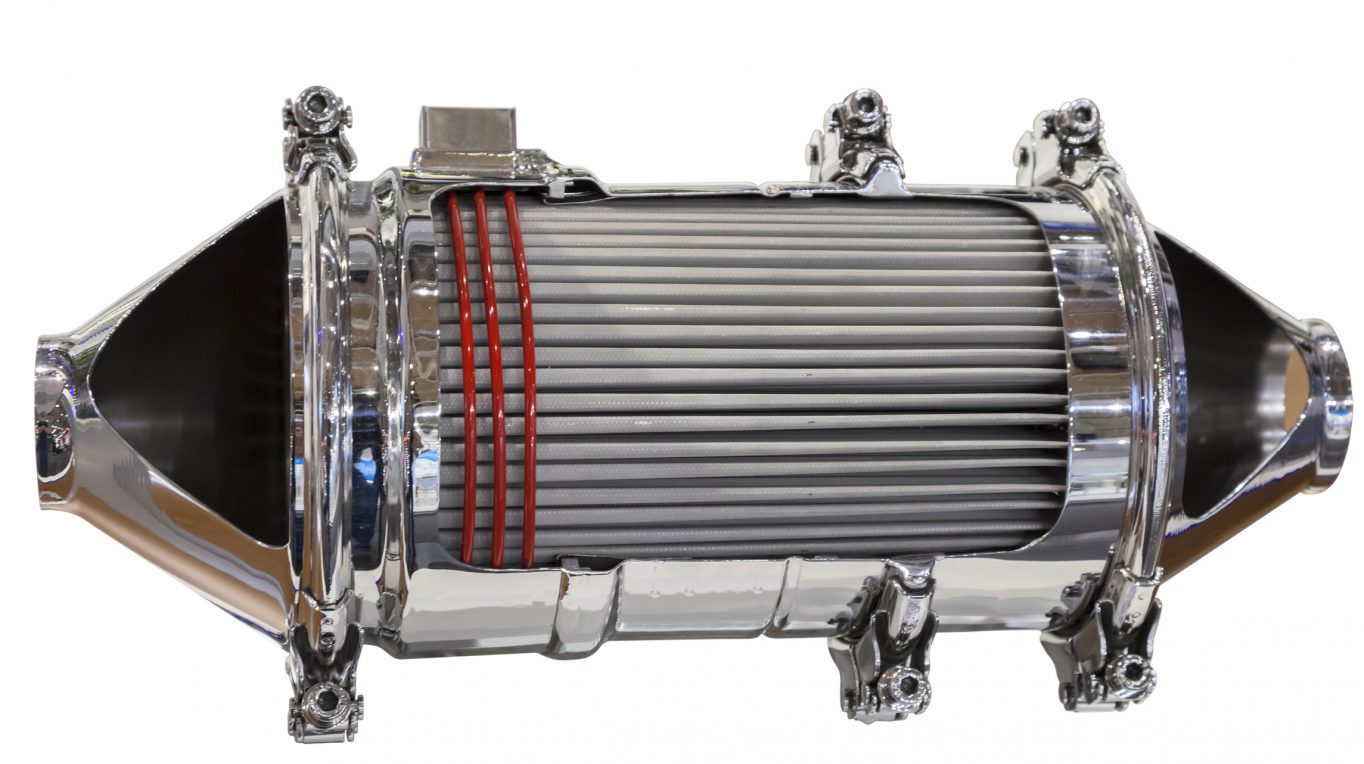
2. Replace Catalytic Converter(s) with new OE Catalytic Converter(s)
> Share of 2016 repairs: 6.75%
> Avg. repair cost: $1,190
> 2016 recommended repairs: 360,827
> 2016 total cost: $429.4 million
[in-text-ad-2]

1. Replace Oxygen Sensor(s) (O2S)
> Share of 2016 repairs: 8.00%
> Avg. repair cost: $259
> 2016 recommended repairs: 427,647
> 2016 total cost: $110.6 million
If you’re one of the over 4 Million Americans set to retire this year, you may want to pay attention.
Finding a financial advisor who puts your interest first can be the difference between a rich retirement and barely getting by, and today it’s easier than ever. SmartAsset’s free tool matches you with up to three fiduciary financial advisors that serve your area in minutes. Each advisor has been carefully vetted, and must act in your best interests. Start your search now.
Don’t waste another minute; get started right here and help your retirement dreams become a retirement reality.
Thank you for reading! Have some feedback for us?
Contact the 24/7 Wall St. editorial team.